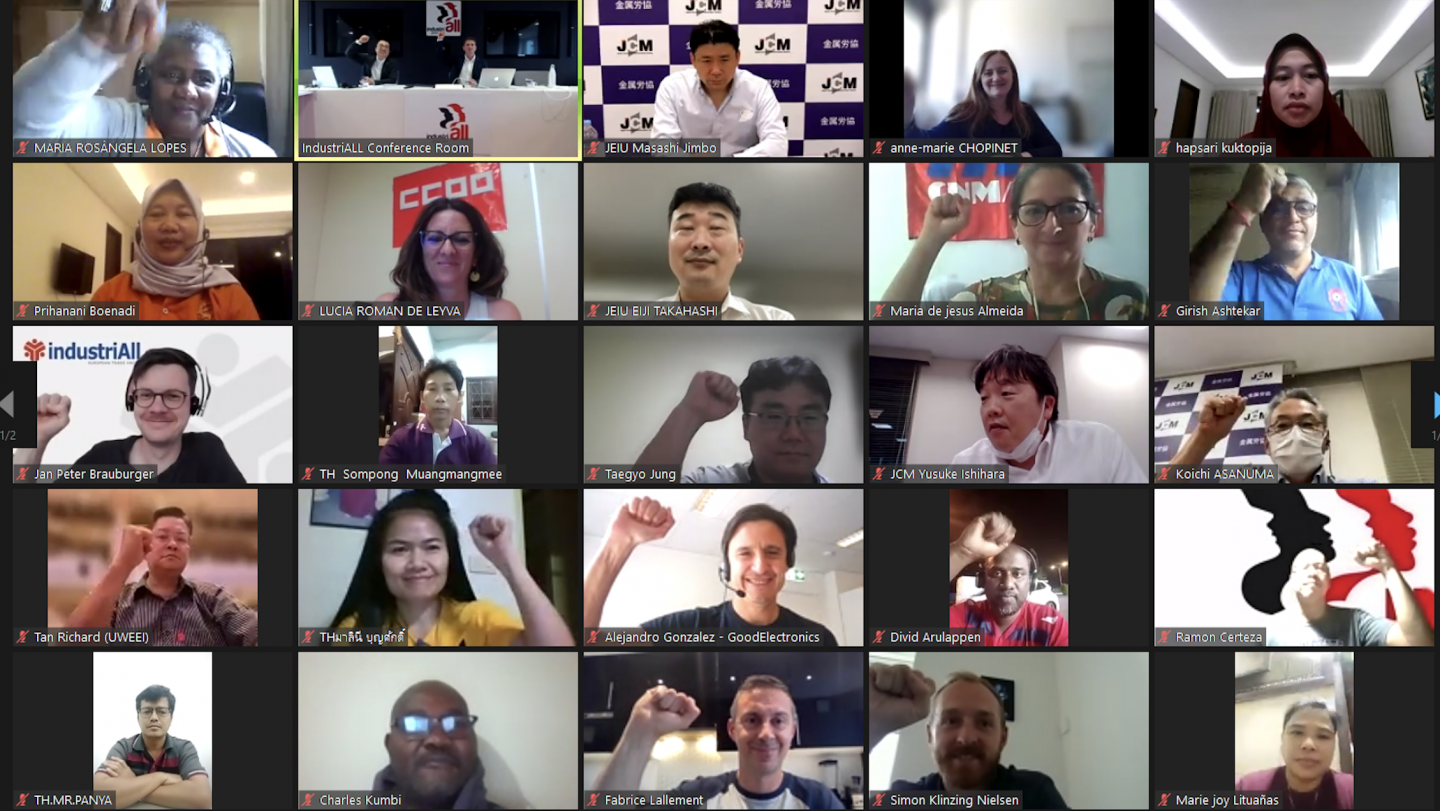Read this article in:
English
16 June, 2022The steering committee for ICT, electrical and electronics met online on 8 June. The 70 participants discussed the changing industry and resulting challenges. To be prepared for the future, an action plan, containing organizing in semiconductors and electronics manufacturing service (EMS) companies, use of due diligence acts, as well as adding gender prospective in the sector work, was agreed upon.
In their respective opening statements, sector chairs Masashi Jimbo, president of Japanese Electrical Electronics & Information Union, JEIU, and Prihanani Boenadi from Federation of Indonesian Metal Workers' Union (FSPMI), both noted how dramatically the industry has changed of over the past year.
Energy and raw material prices are soaring due to the decoupling of the US and China and the impact of the Russian invasion of Ukraine, and countries are reviewing their supply chains. While there are positive aspects, such as increased investment in semiconductors and batteries, the pandemic and further developments have brought challenges, like increased outsourcing, psychosocial pressure at work contributing to the increasing uncertainty of workers.
IndustriALL affiliate Japan Council of Metalworkers' Unions plans to establish human rights due diligence guidelines for trade unions by the end of this year. In addition, since this year's spring offensive, Japanese unions have been taking steps to address human rights due diligence in both industrial and company level collective bargaining.
Key for the unions of the sector is to organize and protect the workers, improve their welfare in the supply chains. Women make up the majority of the workers in the sector, and their participation in unions must be promoted. Forty per cent of the delegates of the meeting were women.
After IndustriALL gender director Armelle Seby presented conclusions from IndustriALL’s women’s committee meeting in May and the gender pay gap, participants discussed how to raise visibility of women in the sector and recommendations for preventing and addressing gender based violence and harassment.
Achieving that includes, among other things, creating safe spaces where women can talk about and make complaints about sexual harassment; strengthening complaints mechanisms; increasing visibility on domestic violence also being a workplace issue; training and awareness raising on GBVH; integrating GBVH in existing occupational health and safety policies; and more women in leadership in unions and as negotiators for collective agreements.
Alexander Ivanou, IndustriALL ICT electrical and electronics director, said:
“The market for ICT, electrical and electronics is projected to grow, defence industry electronics is currently in high demand and the demand for semi-conductors has exploded.
"Coupled with a shortage of raw materials, supply chain issues and a talent shortage, the continued acceleration of the digital transformation presents challenges to the workers and their unions. We must help our affiliates and double our efforts on organizing as many workers as possible both in the industry and the supply chain.”
Participants agreed on an action plan. The unions representing workers in semiconductors sub-sector agreed to create a special union network. A similar strategy will also be pursued in the sub-sector of electronics manufacturing service (EMS) companies.
The gender perspecitve remains an important part of the work in the sector; a special focus will be put on education and tools enabling trade unions to adopt gender responsive approach to occupational health and safety.
IndustriALL and affiliates will use the increasing opportunities for promotion of worker and union rights in the sector through the series of legislative acts on human rights and due diligence being adopted in Europe and outside.


